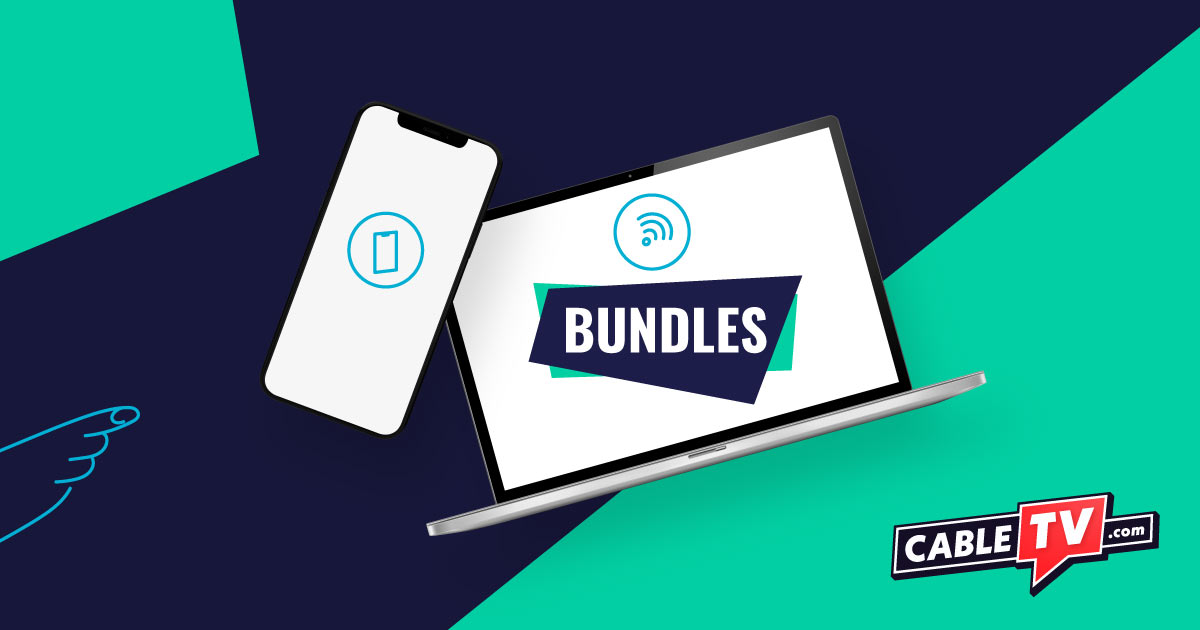Internet service providers use a lot of specialized language to talk about home Wi-Fi setups and internet plans. If the technical stuff goes over your head, you’re not alone.
But you don’t have to be confused about your internet plan anymore—we’re here to explain internet speeds so you can be a home internet wiz.
To find an internet service provider (ISP) in your area who will fit your needs and budget, enter your zip code below.
What internet providers offer the best internet speeds?
AT&T offers the fastest internet, with up to 5,000 Mbps download speeds. But Xfinity and Verizon Fios also have some killer speeds.
Speed isn’t the only thing to consider with an internet provider, though. The table below has our picks for best internet providers based on internet speeds, contract flexibility, and low monthly prices. To learn more, check out our full review.
Fastest internet providers
| Provider | Designation | Price | Download speeds up to | Upload speeds up to | |
|---|---|---|---|---|---|
| Verizon Fios | Editor's choice | $49.99–$109.99/mo. (w/ Auto Pay) | 300–2,300 Mbps | 300–1,500 Mbps |
Read Verizon Fios review |
| AT&T | Fastest | $55.00–$155.00/mo. | 100–5,000 Mbps | 20–5,000 Mbps |
Read AT&T review |
| Xfinity | Best for performance | $40.00–$100.00/mo. | 300–2,000 Mbps | 10–6,000 Mbps |
Read Xfinity review |
| Spectrum | Best no-contract | $50.00–$70.00/mo. | Up to 500–1,000 Mbps | 10–35 Mbps |
Read Spectrum review |
| CenturyLink | Cheapest | $50.00–$75.00/mo. | 100–940 Mbps | 10–940 Mbps |
Read CenturyLink review |
Data effective as of post date. Offers and availability may vary by location and are subject to change.
Data caps
On top of internet speeds, make sure you also note your internet provider’s data cap. Many providers slap on arbitrary restrictions to how much you can download each month. If you can, go for a provider with unlimited internet plans, which allow you to use the internet as you want without paying more.
If your provider has a 1 TB data cap (one of the most common data allowances), don’t stress too much. That’s honestly quite a lot, and unless you have tons of people streaming TV for hours at a time in your home, you’re unlikely to hit that limit on any given month.
But watch out for providers that have smaller caps, like 500 GB. That’s easier to run through than you’d think.
For more information on which providers have data caps and the penalties you could face for going over your limits, check out our full data cap article.
What determines my internet speed?
Your internet speed depends on your internet provider’s network type, download speeds, and upload speeds. Here’s what you need to know about all three of these specifications.
Types of internet
While you’re looking for a new internet provider, you may run into advertisements for fiber internet. The ads say it’s “as fast as light,” and there’s probably a picture of some sci-fi-looking shiny cables. It’s wild.
All those futuristic attention-grabbers try to show off fiber internet as one of the fastest, most effective types of internet networks. And they’re right. But fiber isn’t the only kind of internet out there. Cable, DSL, and even satellite internet are also internet technologies you might run into.
Fiber tends to be the fastest, so most internet networks at least have a fiber “backbone”—using fiber cables to shoot internet across long distances and utilizing existing cable and DSL networks to get internet from there into neighborhoods and to homes.
Cable and DSL internet connections are your next-best options if you can’t get fiber internet, while satellite internet offers the slowest download speeds. You can enter your zip code below to see which internet types and providers service your area.
Download speeds
Internet providers advertise internet plan speeds based on the maximum download speeds. To illustrate how download and upload speeds work, imagine you’re sitting at a restaurant. A server takes your order and comes back with food.
In our example, your internet speed is how much food your server can carry at once. Low internet speeds are like a server with only enough upper body strength to bring your salad one piece of lettuce at a time. That would take forever, even if they could run super fast.
But when you get an internet plan with fast speeds, that’s like having a server who can carry a full-course meal in a single trip.
To bring this analogy back to internet speeds, let’s say you’re downloading a two-hour HD video, which is about 8 GB in size. A typical 25 Mbps internet plan could download a two-hour video in about 46 minutes.
But we recommend 100 Mbps speed tier plans as a good internet speed for most people because they’re fast and usually affordable. With 100 Mbps of download speed, you could download a two-hour video in about 11 minutes.
And with a download speed of 1,000 Mbps (often advertised as 1 Gbps or 1 gig speed tier plans), you could download that same two-hour video in only 1 minute.
Upload speeds
Occasionally, internet providers will advertise their upload speeds as well as download speeds.
Uploading refers to sending information from your computer to the internet. Even clicking to open a new web page uploads a small amount of data, but posting photos to Facebook or running your side of a video call uploads data, too.
While uploading speeds are most important for people who upload large files like videos to the internet (think YouTubers), everyone needs some amount of upload speed.
At minimum, most internet plans should have upload speeds of at least 3 Mbps. That’s about the same upload speed Zoom recommends for you to use on a video call.
How much internet speed do I need?
Your ideal home internet speed depends on the size of your house and how frequently your housemates use the internet. A provider’s super fast 1,000 Mbps internet plan might offer the best performance, but it doesn’t mean it’ll be a perfect fit for your household.
If you live alone or your household doesn’t do much besides checking Facebook posts, you won’t need a pricey and blazing-fast internet connection. But if your household has several smart home devices and multiple people who regularly watch 4K video, you’ll quickly hit the speed ceiling of a basic internet plan.
Internet speeds can also vary depending on issues like network traffic, so consider a provider’s listed speeds to be a general estimate. Use our handy table as a starting point to figure out how much internet speed your house needs.
| Internet speed | Best for | Household size |
|---|---|---|
| 25–100 Mbps | Web browsing and watching online videos | 1–3 people |
| 100–300 Mbps | Regular video calls, online gaming, and 4K video streaming | 3–5 people |
| 300–1,000+ Mbps | Frequent 4K streaming and video calls, transferring large files, and for multiple people who work from home | 5+ people |
Final take
A smooth internet experience requires a strong internet connection that fits your internet needs. We recommend you go with at least 100 Mbps, but you may need more if you have a lot of smart home devices or make frequent video calls online.
Methodology
Our experts have studied internet providers, plans, and technology for years. We compare providers based on reliability, bang for your buck, features, and customer satisfaction. To learn more, check out our How We Rank page.





